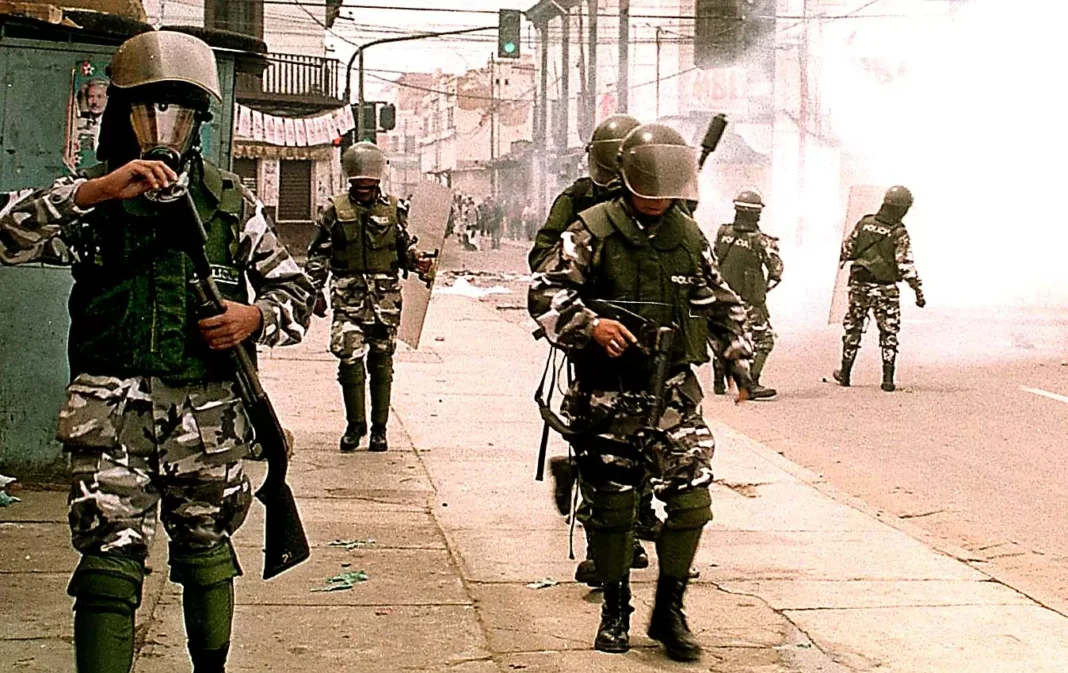In early 2000, the city of Cochabamba, Bolivia was shaken by a series of protests and demonstrations that erupted over the sudden increase in water rates. This event, known as the Cochabamba Water War, was a pivotal moment in the history of Bolivia and a powerful example of the strength and determination of its people.
The story of Cochabamba’s water crisis began with the privatization of the municipal water supply in 1999. The Bolivian government, under pressure from international financial institutions, sold the city’s water rights to a multinational corporation, Aguas del Tunari. This decision was made without the consent or input of the local residents, who were suddenly faced with exorbitant water rates that they could not afford.
The impact of this privatization was felt immediately. Overnight, water rates increased by as much as 300%, making it unaffordable for many families. This was a devastating blow to the already impoverished citizens of Cochabamba, who were forced to choose between paying for water or meeting other basic needs such as food and education.
But the people of Cochabamba were not willing to accept this injustice quietly. Led by indigenous farmers, labor unions, and community organizations, they took to the streets in protest. The city was brought to a standstill as thousands of people marched, chanted, and held peaceful demonstrations demanding that their water rights be returned to them.
The government responded with violence, using tear gas and rubber bullets to disperse the crowds. But the people of Cochabamba refused to back down. They formed barricades, organized sit-ins, and even went on a general strike, shutting down the entire city. This was a remarkable display of unity and determination in the face of oppression and adversity.
The world took notice of the Cochabamba Water War, and the story of the people’s struggle spread far and wide. International solidarity and support poured in, with activists and organizations from around the globe joining the cause. This global attention put pressure on the Bolivian government to negotiate with the protesters and find a solution to the crisis.
After months of intense protests and negotiations, the people of Cochabamba emerged victorious. In April 2000, the government was forced to cancel the water contract with Aguas del Tunari and return control of the water supply to the people. This was a historic moment, and the people of Cochabamba had shown that when they come together and stand up for their rights, they can bring about real change.
The Cochabamba Water War was not just about water. It was a fight for dignity, justice, and the right to basic necessities. It was a powerful example of grassroots resistance and the power of collective action. The people of Cochabamba had shown that they were not willing to be passive victims of unjust policies, but active agents of change.
The legacy of the Cochabamba Water War continues to inspire people around the world. It is a reminder that when we stand together and fight for what is right, we can overcome even the most powerful forces. The people of Cochabamba showed that they were not afraid to challenge the status quo and demand a better future for themselves and their children.
Today, the water supply in Cochabamba remains in public hands, and the rates are affordable for all. This victory would not have been possible without the courage and determination of the people who stood up for their rights. The Cochabamba Water War serves as a reminder that we must never take our basic rights for granted and that we must always be ready to defend them.
In conclusion, the Cochabamba Water War was a turning point in the history of Bolivia and a testament to the resilience and strength of its people. It showed that when we unite and fight for what is right, we can achieve the seemingly impossible. The people of Cochabamba continue to inspire us with their bravery and determination, and their story will forever be remembered as a powerful example of resistance and hope.


